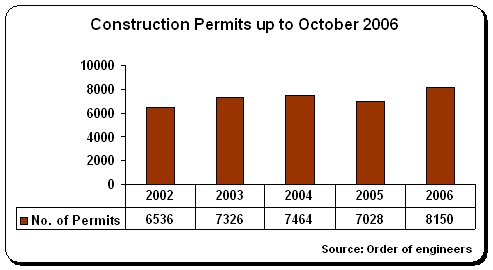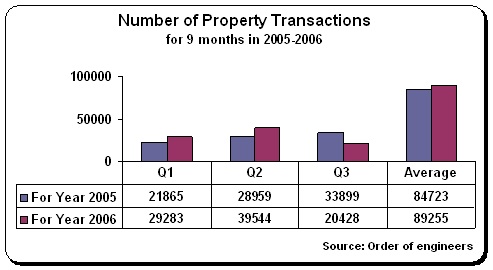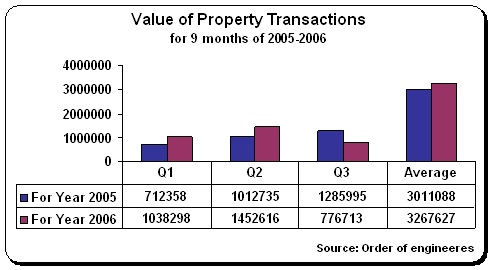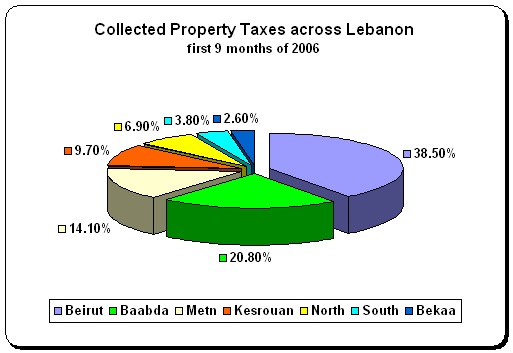Lebanon: The Return of the Phoenix..! - Jan. 2007
- Wednesday, October 9, 2019
buy low dose naltrexone online
buy naltrexone without
prescription
The Lebanese economy in the first half of 2006 was foreseeing a promising year in the horizon, unfortunately massive events and tragedies occurred in the second half. However our expectations for 2007 are highly optimistic regarding the real estate sector.
The Lebanese Real Estate sector has survived tremendous pressure resulting from the opposition strikes and government counter-actions. Despite all such political stagnation, it seems that Lebanese living abroad are insisting on their confidence in the future of their country, where they supported their families by US $4.3 billion of fund transfers from overseas.
On the other hand many questions have been raised toward the future of this country; such as: Can the US afford a second Iraq? Is the EU community ready to lose Lebanon’s cultural and human phenomena? Or can the Gulf countries stand a fanatic and radical society next door?
Raising all these questions can help build an investment strategy in the real-estate and property development projects. Lebanon is a valuable asset in the region, and a vital leading portal for freedom, culture and democracy throughout the history of the region. It is the only country where officials are elected based on the constitution and the power is transferred in a peaceful manner. Despite many deficiencies in the Lebanese political system it is still considered to be the best among Arab countries.
Amazingly; the Lebanese economy experienced another boom during the holidays where Christmas, Adha and New Year met each other. Major shopping centers had record sales; ticket reservations exceeded expectations, while major airlines had charter flights on daily basis. This was a clear message for analysts that the future of this country lies within the hands of the Lebanese people and those who believe in this country.

Gulf investors are now investing in “out-of–the region” markets targeting undeveloped countries, and searching for new opportunities far away from the great competition in their local markets. Gulf companies are now considering Sudan, Morocco, Algeria, Far East and Eastern European countries. There is no reason to blame them.
It is true that the Lebanese market is losing potential inflow of investments due to the current political conflict; and it doesn’t seem that the appetite of gulf and foreign investors would be targeting the Lebanese market in the near future.
Yet the Lebanese market had experienced recovering processes throughout years of devastating turmoil. Those who grasped the chance by purchasing properties during hard times are expected to double their investment as land prices have continued its uptrend scale throughout the past 30 years. Investors should consider the direct political influence on investment atmospheres everywhere but not in Lebanon.

In brief, the Lebanese economy has many factors helping it regain regional and international confidence:
-
The local Banking Sector: Holds 50% of the total Public Debt of $42 billion which represents 190 % of GDP, in figures $22 billion i.e. 52 % of the total debt. July war costs 3.5 to 4 billion USD which adds to the $6 billion needed to finance the public debt and the expected budget deficit for 2007.
-
The private sector in Lebanon is a major player in its recovery, knowing that 92% of private companies are SME (Small & Medium Enterprises) which gives the country a wide diversification of potential revival.
-
During the past 30 years the Lebanese government has never had such an international political and financial support. Paris III conference is completely different than any other gathering to support Lebanon. The International community headed by the US and France in addition to more than 27 influential countries, have openly declared their full support to this lovely country.
In Paris II; The US and IMF put pressure on the Lebanese government as funds were constrained by political and economical reforms. Moreover money came from the EU and many Gulf countries, while the US and its allies were completely reluctant to participate. Despite this attitude; Paris II has reduced interest rates by almost 10 points. While in Paris III the US government and its allies are now leading the International community to participate in a massive financial and political support to the Lebanese government headed by Prime Minister Fouad Sanioura. However; Paris III is not the only solution to the Lebanese economy and monetary system. In an ascending debt and slow growth of the economy, Lebanon has yet great accomplishments to achieve.
It is worth to note that Gulf countries have exploited a valuable chance to avoid another radical regime in the region by helping Lebanon recover from its last crisis. Higher oil prices empowered Gulf countries to help the Lebanese economy avoid an expected collapse worse than the political crisis.
Moreover the Saudis lost more than $480 billion in their stock market in 2006, and the UAE also lost around $100 billion-all in a short period of time. Referring to such figures; enables us to grasp the critical $42 billion debt of Lebanon accumulated since 1992.

Finally at the beginning of 2007, Hayek Group expects a growth in the real estate market resulting from a comeback of Gulf investments specifically in areas like Gemmayzeh and Achrafieh in Beirut, and Aley, Sawfar, and Hammana regions in the mountains. Add to that the Northern entrance of Beirut in Dbayeh, and the coastal North-Metn region.
With 7 to 8 % expected growth of Lebanon’s GDP, Returns on Investments are expected to exceed 35 % per annum as an average.

The government of Lebanon and Opposition leaders despite all their differences; both have a serious chance to take heroic and historic decisions to resolve their current disputes and let Lebanon benefit from Paris III Conference. Since they already know what all Lebanese feel…The Phoenix will soon be on his feet again.
Abdallah Hayek P. E
CEO
Hayek Group s.a.r.l
Beirut – Jan. 2007
Back To Newsletters